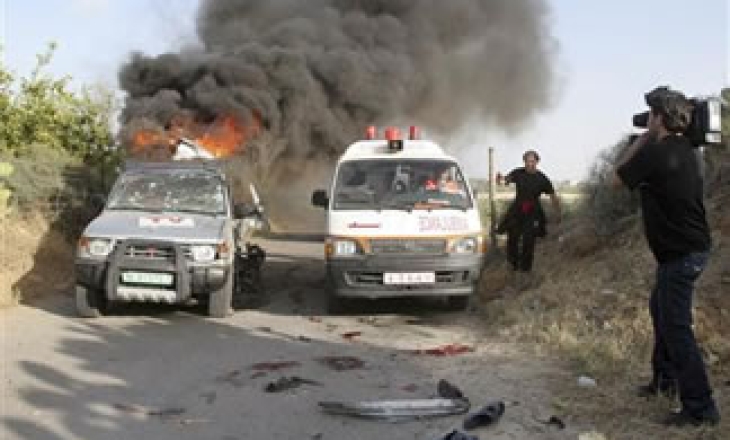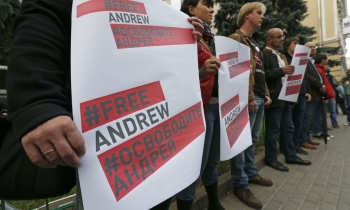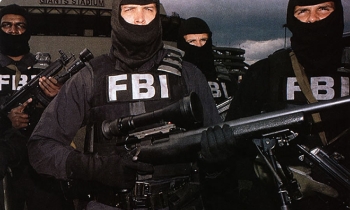A Reuters cameraman was killed in the Gaza Strip on Wednesday in what appeared to be an Israeli military strike, the news agency reported. Fadel Shana, a 23-year-old Palestinian, was covering violence in the enclave.
Two bystanders were also killed in an explosion after Shana stepped from his vehicle, apparently to film Israeli forces positioned several hundred meters (yards) away. His soundman, Wafa Abu Mizyed, also in his 20s, suffered a shrapnel wound and was being treated in a Gaza hospital.
Film from Shana's camera showed an Israeli tank stationed several hundred meters away opening fire. Some two seconds after the shot raises dust around the main gun barrel, the film goes blank—apparently at the moment Shana was hit, the Reuters report said.
Earlier, local residents had said the explosion appeared to have been caused by an air strike.
The Reuters vehicle, an unarmoured sport utility vehicle bearing "TV" and "Press" markings, had just stopped and Shana got out to film, local residents said. The blast left the car shattered and ablaze. Shana's body amour had been partially torn from his body. Abu Mizyed had no immediate recollection of the incident.
An Israeli military spokeswoman said she had no information on a strike on a vehicle in the area of central Gaza where the incident took place in late afternoon.
When asked about Shana's death, Mark Regev, spokesman for Israeli Prime Minister Ehud Olmert, said: "In our operations we try to be as surgical as possible and make every effort not to see innocent people caught up in the fighting."
Reuters Editor-in-Chief David Schlesinger called for an investigation into the incident and said Reuters' thoughts were with the family. "This tragic incident shows the risks journalists take every day to report the news. All governments and organizations have a responsibility to take the utmost care to protect professionals trying to do their jobs," he said. "Our thoughts are with his family. We request an immediate investigation into the incident by the Israeli defense forces."
Reporters sans Frontières (RSF) and International Federation of Journalists (IFJ) have called for an investigation as well. “If the first reports are true that Israeli fire is responsible for this incident we need to know how it happened and why it happened,” said IFJ General Secretary Aidan White. RSF said, “We offer our condolences to Fadel Shanaa’s family and friends. His death serves as reminder that the Gaza Strip, the theatre of violence clashes between the Israel Defence Forces and Palestinian armed groups, is still one of the world’s most dangerous places for journalists.”
Shana, who had worked for Reuters in Gaza for more than three years, was wounded in August 2006 when an Israeli aircraft fired a missile at the vehicle he was travelling in. An armoured car, that vehicle also carried markings showing it was being operated by a media organisation.
Shana, who was unmarried, was a gentle and popular figure among the 15-strong Reuters news team in the Gaza Strip, which last month was honoured by Britain's Royal Television Society for its coverage of last year's fighting between Palestinian factions in the territory.
Hundreds of journalists and well-wishers flocked to the hospital where Shana's body was taken. The family planned to hold a funeral on Thursday.
Journalists have become casualties on numerous occasions in the Palestinian territories. Media watchdogs estimate that up to 10 have been killed in the West Bank and Gaza Strip since 2000.
An Israeli soldier shot a Reuters photographer in the leg in Gaza in October. In 2003, Reuters' award-winning Palestinian cameraman Mazen Dana was shot dead by a US soldier in Baghdad.










